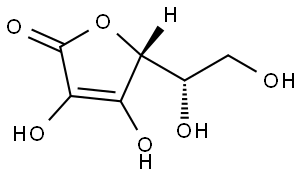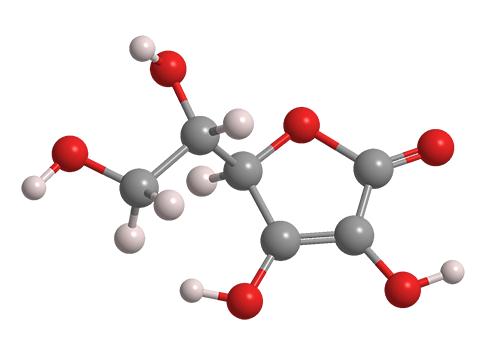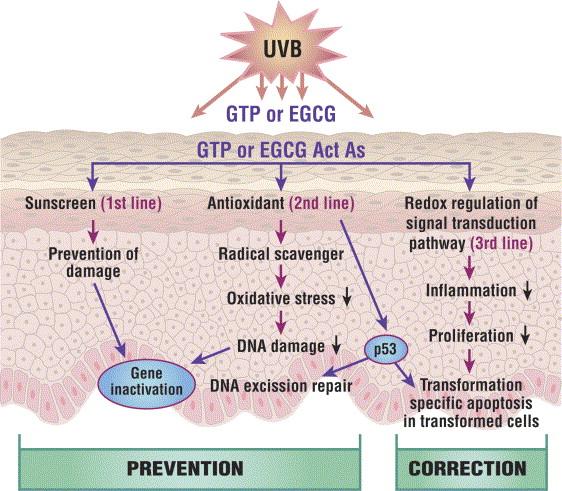Photoprotection of Human Skin by Vitamin C
Several studies investigated the photoprotective effects of topical vitamin C (ascorbic acid). Using a porcine skin model and applying 15% vitamin C in an aqueous solution adjusted to pH 3.2 with the help of semi-occlusive patches, vitamin C significantly protected from UVB-induced erythema and sunburn cell formation.
In a human study, however, a lower concentrated hydro-alcoholic lotion with 5% vitamin C did not induce any significant photoprotective effects when applied once 30 minutes before irradiation at a dose of 2 mg cm−2. Besides differences between pig and human skin responses, differences in vitamin C concentration, amount of formulation applied, vehicle composition as well as other experimental parameters may explain this difference in photoprotective efficacy of the vitamin C formulations. Vitamin C is easily degraded by oxidation, which makes the development of a stable formulation challenging. Vitamin C can be stabilized in an aqueous formulation at low pH and under oxygen exclusion. Or, as described more recently, vitamin C can be kept stable in appropriate water-free, silicon-based vehicles.
Alternatively, esterified vitamin C derivatives such as magnesium or sodium ascorbyl phosphate, aminopropyl ascorbyl phosphate, and tetrahexyldecyl ascorbate (tetra-isopalmitate ascorbate) are stable and therefore promising alternatives to vitamin C.
However, as described for vitamin E esters, these esters must be hydrolyzed to vitamin C to manifest antioxidant properties. In addition, some of those derivatives (e.g., tetrahexyldecyl ascorbate) are of significant higher molecular weight compared to vitamin C, which will affect their skin permeability. Vitamin C does not act as a sunscreen, nor does it absorb UVA. In addition to its antioxidant properties, vitamin C participates in the formation of collagen as a co-factor of prolyl and lysyl hydroxylase, enzymes essential for the stabilizing and cross-linking of newly-formed collagen molecules. In humans, a six month use of a 5% vitamin C cream resulted in significantly improved skin relief and a decrease in deep furrows compared to placebo.
You may like
Related articles And Qustion
See also
Lastest Price from Ascorbic Acid manufacturers

US $1200.00-1100.00/ton2025-10-22
- CAS:
- 50-81-7
- Min. Order:
- 1ton
- Purity:
- 99%
- Supply Ability:
- 1000T/M

US $3.80-3.50/kg2025-07-10
- CAS:
- 50-81-7
- Min. Order:
- 1000kg
- Purity:
- ≥99.8% (Pharmaceutical Grade) / ≥99.0% (Food Grade)
- Supply Ability:
- 1000 tons




